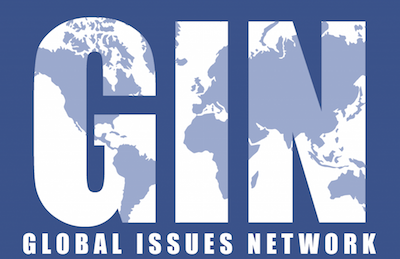Students build upon their passions and strengths to create positive change as leaders of today.
Our Impact
Transgenerational Empowerment as Global Citizens
100,000+ Students From Over 100 Nationalities
13-year Track Record of Measurable Impact
Student Led Local-Global GIN Projects
150+ Student Led GIN Conferences
GIN Ethos
Engage empathy as Global Citizens
Make our work effective and sustainable
Transgenerational community empowerment
Answer our call to action as resilient leaders of today
Value life-long learning as a means to create positive change
Innovate socio-environmental awareness, expression & action
The GIN Project Process: Youth-Led Empowerment
Youth empowerment and learning are valued and nurtured every step of the way; from youth led passion driven local-global projects, to building a sustainable youth led GIN school community culture, to youth led and designed gatherings of change-makers (GIN conferences). Together we create a communal identity that not only believes that change for the better is possible, but that students, are capable of MAKING sustainable change. We recognize we have both local and global impact. GIN is a growing global community made up of resilient change-makers who are dedicated to solving global issues through local communal empathetic action; unencumbered by fear of failure.

Real Challenges & Lasting Impact
GIN projects are designed with the purpose of understanding oneself, one’s community, our planet systems and our collective power to make positive change within all of these contexts as activated lifelong learners.
A GIN Project can take many forms. It is an expression of passion and a result of effective collaboration.
A GIN project is focused on working to sustainably address local-global issues in our direct community. GIN student teams develop GIN projects through dialogue and research within their self-identified passion and community. Student teams are expected to create a sustainable GIN project based on community identified needs and issues while incorporating and tying together the following thinking frameworks to effect change: historical methodologies, cultural perspectives, empathetic action, as well as sustainable design and systems thinking.
Within this process, students formulate their own understanding, expression, and implementation of local solutions to global problems.
GIN Conferences Empower
Each year, student-led and designed GIN conferences bring together whole host school communities, visiting GIN students, community leaders and GIN educators with change-makers, experts of all ages, NGOs, and representatives from educational organizations. Schools typically host the GIN conferences have ranged in size from 100 to 1,000 participants. With a growing number of local conferences each year the network is building the strength of its global action and dialogue.
A Global Issues Network Conference brings together global citizens who are addressing local-global issues. We challenge students to design every element of the conference with sustainable conscientious learning, living, and culture in mind: from outreach to local and regional schools, to the conference carbon footprint calculation and offset, to art as an expression of activism, to food justice and the mindful meal, to youth led and facilitated workshops focused on leadership, collaboration, sustainable solutions and learning to be a changemaker; all of this has and continues to grow a culture and community of global citizens dedicated to empathetic action.
Student-led conferences are supported by school communities across the globe. Regional and local conferences are growing and responding to their “Call to Action!” Students from more than 100 nations on 5 continents have presented their work at both local and regional Global Issues Network Conferences.
School communities have supported GIN as GIN Conference Hosts since its inception. GIN Conferences are held on school campuses around the world. GIN Conferences were created to teach students how to bring changemakers (students and adults) together to engage as activated global citizens and encourage trans-regional and global problem-solving. Students design and lead learning experiences that develop bonds and foster the cross-pollination of solutions.
